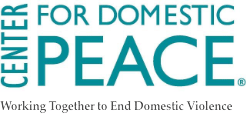Children Exposed to Domestic Violence
Children in abusive homes can experience the effects of abuse in multiple ways. They may be exposed indirectly to the abuser’s violent and coercive behaviors toward their parent by witnessing or overhearing the abuse, or by noticing bruises and injuries after an act of violence occurs. They themselves may experience verbal, physical, emotional, and/or sexual abuse.
Whether directly or indirectly exposed, children who are exposed to domestic violence experience the painful effects of abuse. Even if they themselves are not directly being hurt, they feel the pain and fear that comes from living with someone who is threatening and controlling. And since abuse and violence are learned behaviors, part of the impact on children can also involve them taking on the cultural beliefs that support domestic abuse. One study reveals that men who were exposed to physical abuse, sexual abuse, and adult domestic violence as children were almost 4 times more likely than other men to perpetrate domestic violence as adults. (1)
Depending upon their age, children may respond to their experience of abuse in a variety of ways.
All children and youth who live with domestic violence are affected by the experience. The nature and extent of the effects vary greatly. Some children are severely traumatized while others are able to cope well, and go on to live healthy, productive lives.
Some may:
- Experience confusion and damage to their ability to trust the people in their lives.
- Worry about the future, or feel anxiety over never knowing what is coming next.
- Side with the abusive partner in order to stay safe, recognizing where the power lies in the family.
- Try to protect the abused parent, even to the point of physically coming between the adults.
- Have a difficult time focusing at school because they are worried about what is happening at home.
- Have an impulse to get away because home feels like a dangerous place.
- Feel guilty, or believe that the abuse is their fault.
- Experiment with alcohol, drugs, overeating, or self-harm to numb their feelings.
Children who have experienced abuse need support.
A strong relationship with a caring, nonviolent parent is one of the most important factors in helping children grow in a positive way despite their experiences.. Their support can make the difference between fear and security, and can provide a foundation for a healthier future. Non-offending parents can help their children by being honest with them, and tell them that the abuse is not their fault. As parents seek support for themselves, they can also explore resources that will specifically support the children. Involving other caring adults can sometimes be helpful; whether they are living with the abuser or have left, these parents are usually working through many difficult issues all at once as they seek to establish and maintain safety for themselves and their children.
Some tips for responding to children who have experienced domestic violence:
- Tell them it’s not their fault.
- Help them think of a safe place. What do they do/where do they go when the fighting happens?
- Be sure they know it’s not safe to try to stop the fighting, even though they might want to.
- Ask if they have access to a phone and do they know how to call 911? Ask if they feel safe calling 911 if needed. If not, ask who they can call or what they can do instead.
- Try not to pass judgment on the abuser; kids often love the person who’s doing the hurting.
- It may help to ask if the person doing the hurting also hurts anyone else in the family.
- Ask if there someone they can talk to about the problem if they need to, such as a teacher, the other parent, a caregiver, counselor, etc.
- Tell them they are not alone.
- Give permission to tell their story.
- Give children daily reminders that they are lovable, competent and important.
- Have rules and routines so children can know what will come next.
- Teach alternatives to violence.
- Build self-esteem.
- Be a role model for children by resolving interactions in respectful and non-violent ways.
Early Intervention is Essential
Early intervention is the best way to ease the impact of exposure to domestic violence on a child’s development. The best intervention plans work with the survivor parent and the child to create a safety plan and to connect them with helpful resources like counseling and support groups. This helps children gain stability. It also weakens the impact of the exposure. Successful intervention methods include safety planning with both the non-abusive parent and the child, identifying other supportive adults in the child’s life, and providing counseling and support for the child and the abused parent.
Call Center for Domestic Peace’s helpline to learn more about our work with children, including our In This Together trauma therapy and multi-family support groups for families and children who are or have experienced domestic violence.
English/Spanish: 415-924-6616
Click Here to Get Help for Children
Other resources include:
Child Welfare Information Gateway:
https://www.childwelfare.gov/topics/systemwide/domviolence/impact/children-youth/
Futures without Violence website for those who work with children http://promising.futureswithoutviolence.org/
1Whitfield, C.L., Anda, R.F., Dube, S.R., Felitti, V.J. (2003). “Violent Childhood Experiences and the risk of Intimate Partner Violence as Adults. Journal of Interpersonal Violence. 18. 166-185.
